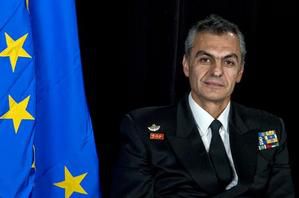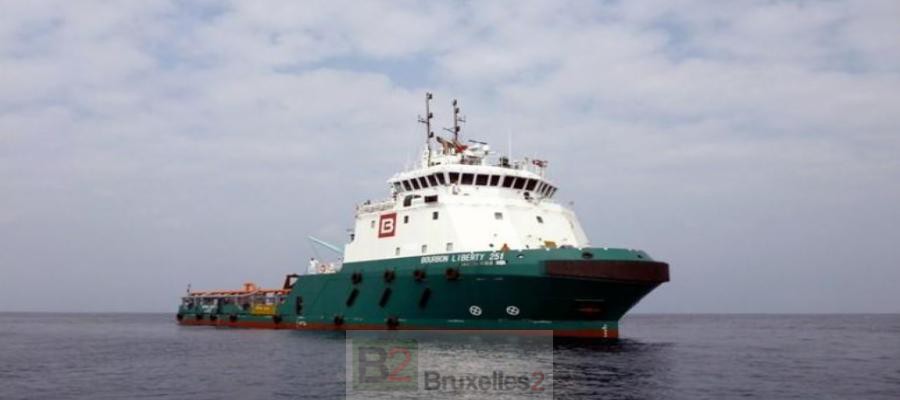Operation Atalanta against pirates. The European system V3
As stated in the document which has just been finalized, the commander of the operation has received the mandate of the 26 to activate the deployment order, the start of the European operation to fight against pirates (Eunavfor Atalanta) being set for 8 December. We now know more about most of the details.
The operation will last a year, divided more or less into three periods of four months each (December-March, April-July, August-November). It should bring together between 7 and 8 ships, eventually, 1 plane and helicopters, and about 1000 men. In order to ensure the duration of the mission, it is in fact about twenty ships/crews, which must be found, that is to say approximately 3000 men. According to the operation plan, the "minimum operational capability" will be possible in mid-December, as soon as the force commander's boat (the Greek boat) is present. "Initial Operational Capability" (IOC) is expected to be achieved in January and "Full Operational Capability" (FOC) is expected in April or May. The operation should thus start with 4 boats at the beginning (France, British, Greece, Germany), 7 boats in May (with Spain and Sweden). The Netherlands, even Belgium, taking over later. Suffice to say that the “first months will be decisive” as a senior officer points out.
 A truly European command. The operation will be commanded by British Rear Admiral Philip Jones from the British Operation Headquarters (OHQ) in Northwood. His deputy will be French rear-admiral Jean-Pierre Labonne, currently deputy to the Admiral commanding the French naval action force in Brest (he will later be relieved by a German). On site, the Force Commander (at sea) will be rotated between Greece, Spain and the Netherlands. It is the Greek commodore Antonios Papaioannou (photo in the background) who should thus command the force, from December, from the Greek frigate "Nikiforos Foras". He should be replaced in April 2009 by Captain Juan Garat Caramé (Spain), then by a senior Dutch officer from August 2009.
A truly European command. The operation will be commanded by British Rear Admiral Philip Jones from the British Operation Headquarters (OHQ) in Northwood. His deputy will be French rear-admiral Jean-Pierre Labonne, currently deputy to the Admiral commanding the French naval action force in Brest (he will later be relieved by a German). On site, the Force Commander (at sea) will be rotated between Greece, Spain and the Netherlands. It is the Greek commodore Antonios Papaioannou (photo in the background) who should thus command the force, from December, from the Greek frigate "Nikiforos Foras". He should be replaced in April 2009 by Captain Juan Garat Caramé (Spain), then by a senior Dutch officer from August 2009.
THEGermany provides a frigate, as well as commandos who will take place in sensitive merchant ships, as well as hours of air patrol, or 1400 men in all over the duration of the operation, specified the German Ministry of Defense. Germany will be primarily responsible for the protection of the WFP ships (taking over from the Dutch who carry out this function under the national flag*). The ruling coalition has yet to reach a specific agreement, including on the possible use of force, and the Bundestag must approve such a mandate. The Ministry of Defense hopes to obtain this mandate before Christmas.
La France provides a frigate and flight hours of an air patrol aircraft, as well as various logistical resources from its permanent base in Djibouti. All these resources are already there. But the detail must still be the subject of arbitration at the highest level of the State, in order to distinguish the means made available to the European operation and those remaining under national command.
La Greece provides the flagship, a "Nikiforos Fokas" frigate, and its Lynx helicopter, which are currently en route to Djibouti.
The Netherlands already have a frigate, the "Hr Ms De Ruyter" and "marine commandos" which, since October, have provided protection for the World Food Program ships which are transporting humanitarian aid to Somalia. It remains under the national flag. It should enter the country soon. But the kingdom of Queen Beatrix should send ships back to the area for the third period (in August).
Le United Kingdom provides a frigate, the "HMS Cumberland", which is already in the area, under the permanent NATO group (the SNMG2).
THESpain will provide a frigate, the "Victoria", as well as a logistic support ship, as well as a P3-Orion surveillance plane, ie 400 men. The plane, based in Djibouti, is already in service and has already carried out certain protection missions.
La Sweden promised two Navy corvettes and a support ship (150 men) to accompany WFP ships from April-May, according to Defense Minister Sten Tolgfors. The decision must be confirmed by the government and Parliament (a bill is being prepared by the Ministry of Defense and Parliament could decide at the beginning of the year).
The participation of third countries - such as Norway - is not yet really fixed (1). Third countries have not been “put in the loop” a soldier confirms to me. The situation is even more complicated for non-European states. They could be in a second time (second or third period of the operation).
(NGV)
(1) Read: the participation of third States
(*) and not the NATO flag as this organization proclaims.

